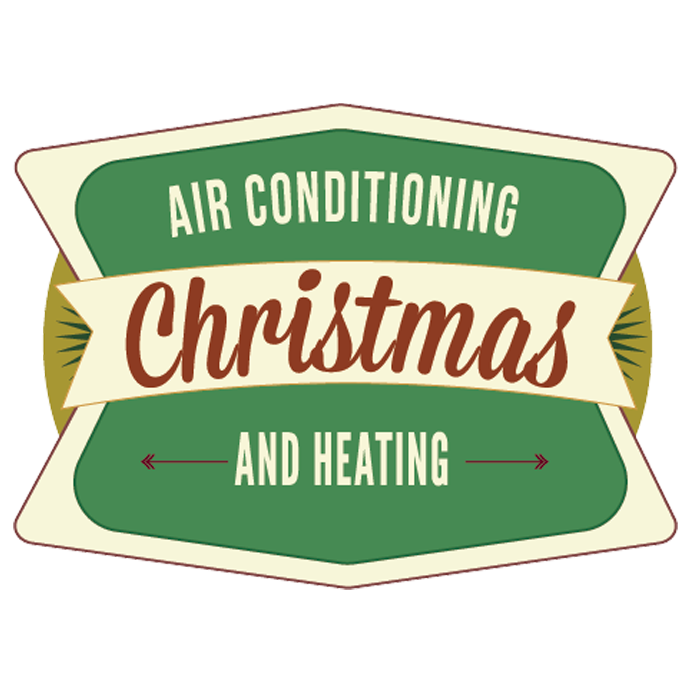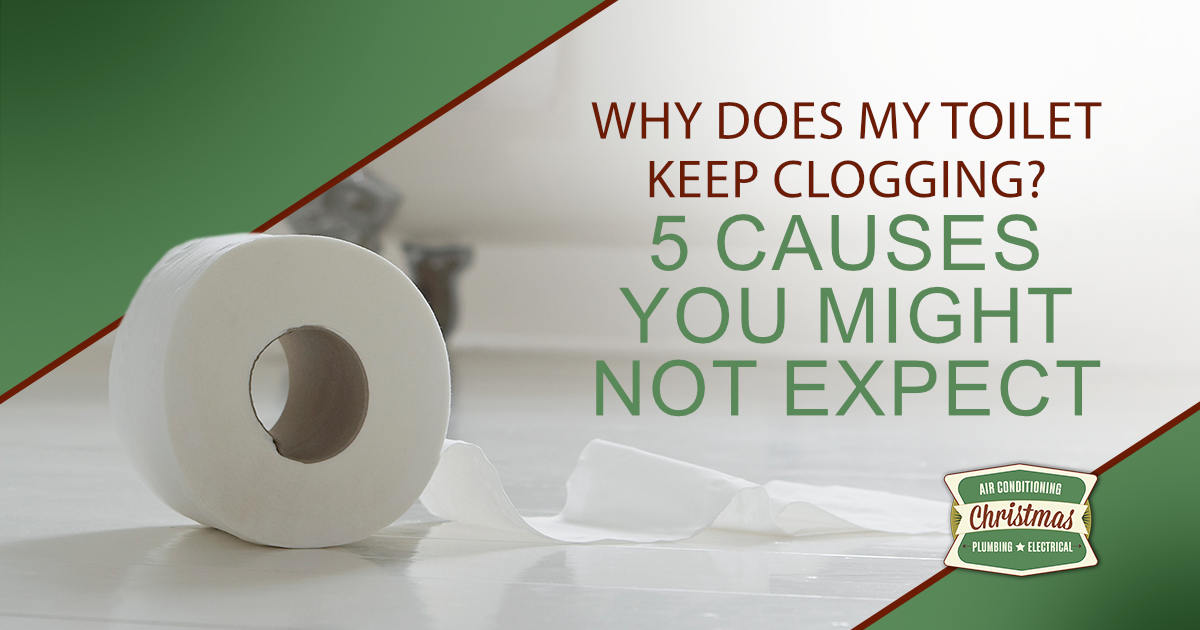Many Denton homeowners experience the same frustrating problem — a toilet that keeps clogging even after plunging, flushing correctly, or avoiding obvious mistakes. While it’s easy to assume the issue is simple, recurring toilet clogs often point to deeper plumbing problems. These problems can range from toilet design flaws to buildup inside the pipes or issues with the home’s drainage system. Understanding what causes these blockages can help homeowners prevent future problems and know when to call a professional. Below are five often-overlooked causes of frequent toilet clogs that every homeowner should be aware of.
Why Your Toilet Keeps Clogging Even When You Flush Properly
Many Denton homeowners get frustrated when toilets repeatedly clog despite proper use, disrupting routines and posing sanitation risks. Frequent clogs often stem from hidden issues like low-flow toilet flaws, hard water buildup, vent pipe blockages, or partial sewer line obstructions, beyond just excess toilet paper or non-flushable items. Understanding these causes helps homeowners make informed decisions and find lasting solutions before calling for clogged toilet repair services.
Low-Flow Toilet Design Flaws and Why They Cause Recurring Toilet Clogs
Low-flow toilets are designed to save water and reduce costs, but older models, especially those made before 2010, often don’t have enough flushing power to clear waste efficiently. Insufficient water pressure can leave residue in the toilet or drainpipe, which gradually builds up over time. This accumulation can cause frequent clogs, even when the toilet seems to be working normally.
Common Signs of Low-Flow Toilet Problems
Homeowners may notice subtle signs that their toilet’s design is causing frequent clogs, like needing multiple flushes, unpredictable water levels, or backups despite minimal use. These problems usually stem from inefficient toilet design rather than improper use. Older low-flow models often have smaller trapways and lower water pressure, which can allow waste to accumulate over time and eventually cause a full blockage.
How to Fix Design-Related Toilet Clogs
Replacing an outdated low-flow toilet with a modern pressure-assisted or dual-flush model improves waste flow while conserving water. Homeowners can also prevent clogs by avoiding thick paper products, checking the trapway and flush valve, and scheduling routine plumbing maintenance. Together, these steps reduce frequent blockages, though persistent clogs may indicate a deeper plumbing issue requiring professional repair.
Hard Water Buildup Can Lead to Frequent Toilet Blockages
Hard water is a common but often overlooked cause of recurring toilet clogs in Denton homes. Minerals like calcium and magnesium can build up inside toilet components and pipes, gradually restricting water flow. This reduced flushing power prevents waste from clearing completely, leading to frequent blockages.
How Hard Water Affects Toilet Performance
Minerals from hard water can build up inside the toilet bowl, tank, and rim jets, creating rough surfaces that trap waste and restrict water flow. This reduces flushing power, leaving residue behind and causing frequent clogs, even with proper use, often indicated by white or chalky deposits under the rim. Over time, buildup can affect internal parts like the refill valve, so addressing hard water early helps prevent costly repairs and restores proper toilet function.
Solutions for Hard Water Buildup
Professional plumbers can remove hard water deposits using specialized descaling treatments that clear mineral buildup without damaging toilet components. Long-term prevention can include installing a water softener and regularly cleaning toilets with mild vinegar or approved descaling agents. Addressing hard water early helps maintain proper water flow, reduces recurring clogs, and extends the lifespan of plumbing fixtures.
Vent Pipe Issues Can Cause Toilet Clogging and Slow Draining
Another hidden cause of frequent toilet clogs involves the plumbing vent system. Every toilet connects to a vent pipe that allows air to enter the drain system, helping water and waste flow freely. When this vent becomes blocked, air pressure in the pipes is disrupted. Without proper ventilation, waste can’t move smoothly through the drain, leading to frequent clogs and slow drainage.
How Vent Blockages Develop
Vent pipes that extend through the roof can become blocked by leaves, dirt, or animal nests, restricting airflow in the plumbing system. This can cause gurgling toilets, slow drains, and clogs even when the bowl appears clear, with warning signs like sewer odors or slow drainage in sinks, tubs, or showers. Promptly addressing vent pipe obstructions restores proper water flow and helps prevent recurring clogs.
Why a Professional Inspection Is Needed
Because vent pipes run through the roof and walls, they are difficult for homeowners to access safely. A licensed plumber can use specialized tools to locate and remove blockages, restoring airflow and proper plumbing pressure. Regular vent pipe maintenance, included in routine plumbing checks, helps Denton homeowners prevent toilet backups and costly repairs.
Partial Sewer Line Blockages Can Make Toilets Clog Repeatedly
Frequent toilet clogs despite proper use may stem from a partial sewer line blockage rather than the toilet itself. Such blockages can restrict waste flow from multiple fixtures and are often caused by aging pipes, shifting soil, or tree roots in Denton homes. Even small obstructions can lead to recurring clogs that appear unexpectedly.
Common Causes of Partial Sewer Line Blockages
Sewer lines are buried underground and vulnerable to issues that restrict wastewater flow. Common problems include tree roots entering through cracks, grease and debris buildup, and collapsed or misaligned pipes from soil movement or aging infrastructure. These issues can cause wastewater backups, with toilets often showing the first signs of trouble.
Warning Signs of a Partial Sewer Line Blockage
Early detection is crucial to prevent major damage from a partial sewer line blockage. Warning signs include multiple toilets or drains clogging at once, gurgling or bubbling water in fixtures, and sewage odors near tubs, toilets, or floor drains. If more than one drain is affected, it likely indicates a sewer line problem that requires immediate professional attention.
How Plumbers Diagnose and Fix Sewer Line Blockages
Professional plumbers use specialized tools, such as sewer cameras, to identify the exact cause and location of blockages. They may clear the line with hydro jetting, repair damaged pipes, or replace sections to prevent future clogs and backups. Prompt professional service protects homeowners from further damage, unpleasant odors, and sewage exposure while safeguarding plumbing systems and property value.
Flushing Non-Flushable Items Can Cause Hidden Toilet Clogs
Even with careful use, flushing the wrong items is a common cause of recurring clogs. Many products labeled “flushable,” like wipes, cat litter, and feminine hygiene items, don’t break down like toilet paper. These materials can form dense clumps that trap debris, restrict flow, and create stubborn blockages a plunger can’t clear.
Common Non-Flushable Items That Cause Problems
Despite manufacturer claims, certain products should never be flushed, including “flushable” wipes, diapers, paper towels, cotton balls, dental floss, hair, sanitary products, cat litter, and grease. These items don’t break down like toilet paper and can combine with waste to form dense clogs. Over time, they restrict water flow, causing slow drainage and frequent backups, making proper disposal essential to protect the plumbing system.
How Non-Flushables Affect the Plumbing System
Once lodged in the drain, non-flushable items reduce water flow and can create partial obstructions that worsen over time. These blockages often go unnoticed until the toilet fully clogs and can trap sewer gases, causing unpleasant bathroom odors. In homes with older or narrow pipes, even small objects can lead to major plumbing problems.
Preventing Toilet Clogs Caused by Non-Flushables
Preventing toilet clogs starts with proper disposal habits. Homeowners can reduce risk by keeping a covered trash bin near the toilet, using only septic-safe toilet paper, and educating family members on what not to flush. These steps help protect the plumbing system, and if problems persist, a professional plumber should inspect for hidden blockages or buildup.
When It’s Time to Call a Plumber for a Clogged Toilet
While minor toilet clogs can often be cleared with a plunger or drain cleaner, recurring issues usually signal a deeper problem. Homeowners should call a plumber if the toilet clogs frequently or multiple drains are affected, as ignoring it can lead to water damage, sewage backups, and costly repairs. Warning signs include water backing up in sinks, tubs, or showers, gurgling or bubbling sounds, and persistent slow drainage. A licensed plumber can identify whether the problem originates from the toilet, vent system, or sewer line and use specialized tools to fix the root cause, preventing future clogs.
Call Christmas Air Conditioning & Plumbing for Expert Clogged Toilet Repair in Denton, TX
When a toilet keeps clogging despite repeated attempts to fix it, it’s time to call the professionals. Christmas Air Conditioning’s Clogged Toilet Repair Services offer Denton homeowners reliable, long-term solutions for even the toughest plumbing issues. Their licensed plumbers use advanced inspection tools to identify the root cause—ranging from mineral buildup and sewer line blockages to vent pipe restrictions—and perform lasting repairs.
For fast and effective service, call Christmas Air Conditioning & Plumbing today at 469-919-9928 to schedule your clogged toilet repair in Denton, TX. Same-day appointments are available, and all work is performed with clear communication and upfront pricing. Don’t waste another weekend with a plunger — reach out now and let the experts restore your home’s comfort and plumbing efficiency.

